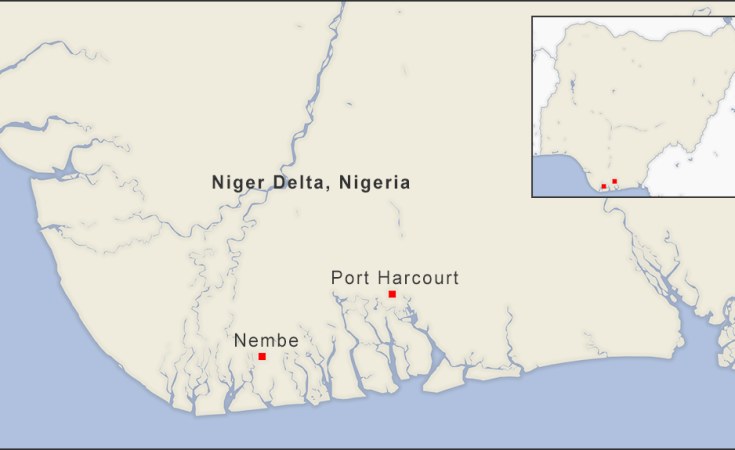For the first time in years, Nigeria's Niger Delta seems to be looking up.
Large numbers of the region's insurgents who had been sabotaging petroleum production and fighting government forces in a campaign for a greater share of oil revenues, have accepted President Umaru Yar'Adua's offer of amnesty.
Hard-line elements of the main militant group, the Movement for the Emancipation of the Niger Delta (MEND), although still sceptical of the amnesty, are observing an indefinite truce to allow for peace talks. On November 14, Yar'Adua held a first-ever meeting with a negotiating team – appointed by MEND – and led by Nobel laureate Wole Soyinka.
Yet the situation remains fragile and the road to an enduring peace is long. In order to consolidate the recent gains, build confidence and prevent a relapse into violence, Yar'Adua needs to beef up the ongoing process of returning former fighters to society and build on his preliminary proposals to address the underlying economic and social problems of the area.
The turnout of more than 15,000 fighters – far beyond government projections of 10,000 for the disarmament, demobilization and reintegration (DDR) programme – is remarkable, particularly as the number includes virtually all the known leaders of MEND. Their response has confounded many analysts, who believed that the government's policy held no incentive for militants to disarm.
Alleged payments to some MEND leaders by governors of some Delta states may have contributed to dividing the militants and softening their earlier resistance to the amnesty. But the large turnout for the programme has other reasons.
Firstly, the political momentum of the Niger Delta struggle has changed. The proliferation of criminal organizations masquerading as politically-motivated fighters has deeply contaminated the armed campaign, eroding previous support from local Delta communities and many non-Delta Nigerians.
Secondly, the government's carrot-and-stick strategy seems to have worked. Some militant leaders, reassured by the government's dropping of treason charges against MEND leader Henry Okah last July, have taken Yar'Adua's at his word. Others concede that setbacks they suffered during government military offensives from May to July this year demoralised some of their members.
Thirdly, many who have accepted the amnesty were not really members of any militant group. The amnesty programme has provided an umbrella for thousands of jobless youth and wanted criminals seeking an avenue for finding employment and escaping justice.
Yar'Adua's success in calming the region, without insisting on fighting the militants to a more costly and bitter end, has rightly earned him applause from many Nigerians, including some of his most ardent critics. However, it is still too early to celebrate. The government and the militants still need to consolidate the peace process.
The disarmament programme needs to be firmed up. The 2,700 guns and 300,000 rounds of ammunition handed in by militants by October 4 certainly do not represent anything near their entire arsenal. As long as many guns are still at large, the region remains highly insecure and at risk of relapsing into violence.
Plans by the military Joint Task Force (JTF) to conduct "cordon and search" operations in communities around former militants' camps could jeopardize the peace process at this point, but the security agencies – in partnership with militant, community and civil society leaders – urgently need to work out alternative programmes for continued disarmament.
Further, facilities provided for demobilizing militants at the two camps so far established at Agbarho in Delta State and Alu in Rivers State, are inadequate. These camps need to be improved and expanded or supplemented with additional facilities
The government agencies involved in the programme need to better coordinate and draw on the experience of similar exercises in other countries, including those administered by the United Nations. The government also needs urgently to identify those many Nigerians who have formulated and administered such programmes in other lands, and draw on their experience.
The militants and the Delta's ethnic leaders also have a responsibility for sustaining the peace process. There are deepening rifts within MEND – 14 leaders have rejected the Soyinka-led negotiating team. The MEND leaders need to resolve their internal differences and agree clearly on their representatives in talks with the government and in communications with the public. They must also prevail on their ex-fighters to be patient and refrain from violence in pressing for speedier implementation of the DDR programme.
Yar'Adua for his part needs to build quickly on recent progress and focus on the deeper problems of the Niger Delta. Many in the region have welcomed reports of proposals to grant a 10 percent equity stake in oil ventures to Delta communities, as well as the president's proposal to the National Assembly for a U.S. $2.3 billion supplementary appropriation for post-amnesty social and economic challenges in the region.
But these new responses must come with clear and realistic guidelines, improved procedures for procurement, financial tracking, monitoring and evaluation of infrastructure works. Plans must also involve local populations in decisions that impact on their lives and address the damaging environmental impacts the petroleum industry has had.
Yar'Adua must lay out a comprehensive road map towards resolving the conflict, building peace, developing infrastructure, restoring the environment, fighting organized oil-related crime and improving security in the region. Twelve months ago, the Technical Committee on the Niger Delta, set up by the president himself, handed him a report that could serve as the basis for that road map. Yar'Adua needs to respond to that report, formally and comprehensively, with a single document to which all other actors can relate effectively, in order to sustain the confidence of all parties in the peace process and achieve lasting results.
Nnamdi Obasi is a senior analyst at the International Crisis Group.


